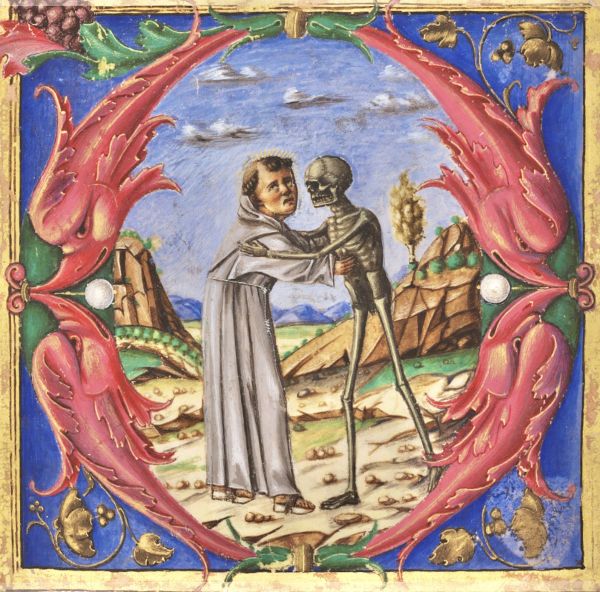In these verses from chapter nine, the Gospel of Luke highlights the conditions necessary to follow Jesus and His bare, poor and wandering life.
«Foxes have dens and birds of the air have nests, but the Son of Man has nowhere to lay his head» (Lk 9:58).
Francis, a true lover and imitator of Him, followed in His footsteps, living his life of faith in poverty and precariousness, because he understood clearly that following Him in His call meant abandoning everything else.
The Sources recount that the Minims, in their Letter to the whole Order, expressed themselves thus:
"Brother Francis, a man of little account and frailty, your little servant, wishes you health in Him who redeemed us and washed us in His most precious blood.
Hearing his name, adore him with fear and reverence, prostrate on the ground: Lord Jesus Christ, Son of the Most High is his name, blessed for ever and ever" (FF 215).
The Poverello always presented Jesus as the One who had nowhere to settle; in fact, the Son of God showed the precarious nature of his life in every circumstance.
Enamoured with poverty, Francis addressed his friars with the words of Luke 9:58:
"[Thus] he taught the friars to build poor little houses [...] to live in them not as their own homes, but as in the homes of others, as pilgrims and strangers.
He said that the code of pilgrims is this:
'Gather under the roof of others, feel thirst for your homeland, pass away in peace'" (FF1120).
And since he repeated that those who do his works are children of God, the Poor Man of Assisi distinguished himself as a child, and in the Spirit he performed many healings.
"People of all ages and both sexes ran to see and listen to this new man, given by heaven to the world.
He travelled through various regions, fervently proclaiming the Gospel, and the Lord cooperated, confirming the Word with the miracles that accompanied him.
In fact, in the name of the Lord, Francis, preacher of the truth, cast out demons, healed the sick, and, even more amazingly, with the power of his words, he softened and moved the stubborn to repentance and, at the same time, restored health to bodies and hearts" (FF 1212).
Clare herself, in her Letters to Blessed Agnes of Prague, takes up the theme of the precarious dimension of Christ and therefore of discipleship.
"O blessed poverty! To those who love and embrace you, you procure eternal riches...
O pious poverty! The Lord Jesus Christ, in whose power were and are heaven and earth, since a mere nod of his word was enough and all things were created, deigned to embrace you in preference to all other things. For he said:
Foxes have their dens, birds of the sky have their nests, but the Son of Man, that is, Christ, has nowhere to lay his head, and when he laid it on his chest, it was to breathe his last" (FF 2864 - First Letter).
In their radical following of Christ, the two champions of poverty had acquired the freedom to be influenced by nothing but Christ.
Wednesday, 26th wk. in Ordinary Time (Lk 9:57-62)












